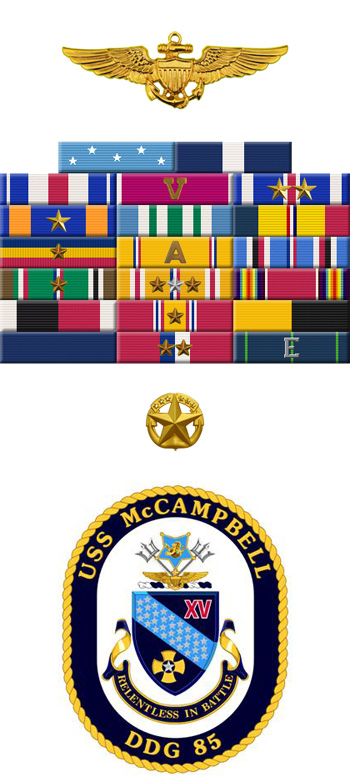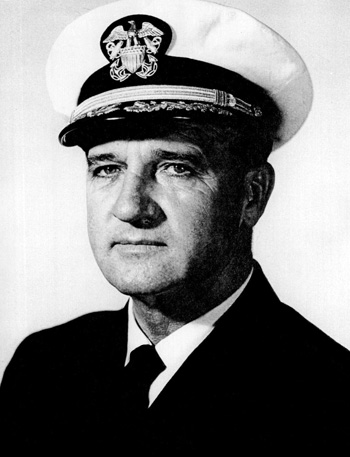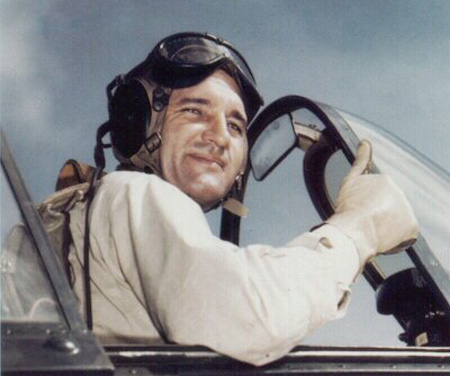
|
David McCampbell |
 |
|||
| Rank, Service | ||||
Captain O-6, U.S. Navy |
||||
| Veteran of: | ||||
|
||||
| Tribute: | ||||
David McCampbell was born on January 16, 1910, in Bessemer, Alabama. He entered the U.S. Naval Academy in 1929, and was commissioned an Ensign in the U.S. Navy Reserve upon graduation on June 1, 1933. McCampbell went on active duty on June 14, 1934, and served aboard the heavy cruiser USS Portland (CA-33) from June 1934 to June 1937, when he went to NAS Pensacola, Florida, for flight training. He was designated a Naval Aviator on April 21, 1938, and served on the aircraft carrier USS Ranger (CV-4) from June 1938 to May 1940, and then on USS Wasp (CV-7) from May 1940 until it was sunk by a Japanese submarine on September 15, 1942. He then returned to the United States and served at NAS Jacksonville and Melbourne, Florida, until August 1943, when he took command of Fighting Squadron 15, where he served until taking command of Air Group Fifteen in February 1944. During combat in the Pacific aboard USS Essex (CV-9), CDR McCampbell was credited with the destruction of 34 enemy aircraft in aerial combat, with an additional 20 destroyed in strafing runs on enemy airfields. He returned to the United States in March 1945, and served as Chief of Staff to the Commander Fleet Air at NAS Norfolk, Virginia, until January 1947. McCampbell then attended Armed Forces Staff College in Norfolk, and remained as an instructor after graduating. He served as the Senior Naval Aviation Advisor to the Argentine Navy, stationed at Buenos Aires, Argentina, from 1948 to January 1951, and then served as Executive Officer aboard USS Franklin D. Roosevelt (CV-42) from February 1951 to March 1952. His next assignment was as the Planning Officer on the Staff of Commander Aircraft Atlantic from March 1952 to July 1953, and then as commander of the Naval Air Technical Training Center at Jacksonville, Florida, from July 1953 to July 1954. He then commanded the fleet oiler USS Severn (AO-61), followed by the aircraft carrier USS Bon Homme Richard (CVA-31). Capt McCampbell was then assigned to the Joint Chiefs of Staff at the Pentagon, from 1960 to September 1962. His final assignment was as Assistant Deputy Chief of Staff for Operations to the Commander in Chief of Continental Air Defense Command, where he served from September 1962 until his retirement from the Navy on July 1, 1964. David McCampbell remains the highest scoring fighter ace of the U.S. Navy with 34 aerial victories during a single tour of combat duty in World War II. He died on June 30, 1996, and is buried at Arlington National Cemetery. On August 17, 2002, the Arleigh Burke-class Guided Missile Destroyer USS McCampbell (DDG-85) was commissioned and named in honor of Captain David McCampbell. |
||||
|
||||


